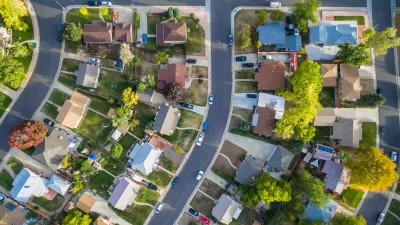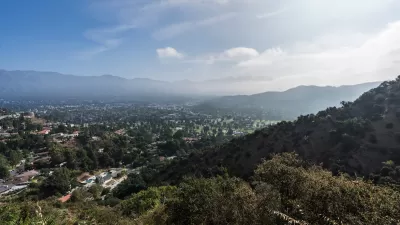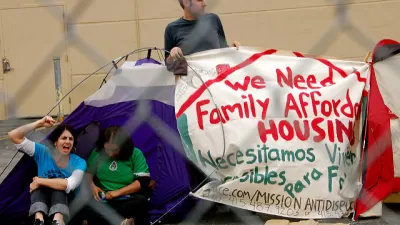Stanley Kurtz reports that Congressman Paul Gosar (R-Arizona) "is planning to offer" an amendment to the Transportation, Housing and Urban Development Appropriations Bill that would declaw the Obama Administration's proposed "AFFH" rule.
Kurtz explains the proposed rule for Affirmatively Furthering Fair Housing (AFFH) while attacking it: "this rule uses the language of fighting discrimination to re-engineer Americans’ housing choices. AFFH forces every municipality receiving federal aid to conduct a survey of its neighborhoods by race, ethnicity and income. If the mixture is not to the federal government’s liking, changes would have to be made on pain of losing federal funding. This would effectively strip local governments of their zoning powers."
Kurtz is mainly interested in citing the proposed AFFH rule as an example of a systematic campaign by the Obama Administration against the suburban way of life: "Furthermore, by redefining 'fair housing' to mean housing near transportation hubs and dense downtown districts where many jobs are available, AFFH can be used to change the way Americans live, urbanizing suburbs and Manhattanizing cities."
For another take on AFFH, reference a post by the National Low Income Housing Coalition published in July 2013, when the proposed rule was published for comment.
Rep. Gosar's amendment, which Kurtz says has a chance to pass the House but will face a more difficult test in the Senate, "would bar the use of funding to implement, administer, or enforce the Obama administration’s proposed rule on Affirmatively Furthering Fair Housing (AFFH)."
FULL STORY: Stopping Obama’s Assault On the Suburbs

Manufactured Crisis: Losing the Nation’s Largest Source of Unsubsidized Affordable Housing
Manufactured housing communities have long been an affordable housing option for millions of people living in the U.S., but that affordability is disappearing rapidly. How did we get here?

Americans May Be Stuck — But Why?
Americans are moving a lot less than they once did, and that is a problem. While Yoni Applebaum, in his highly-publicized article Stuck, gets the reasons badly wrong, it's still important to ask: why are we moving so much less than before?

Using Old Oil and Gas Wells for Green Energy Storage
Penn State researchers have found that repurposing abandoned oil and gas wells for geothermal-assisted compressed-air energy storage can boost efficiency, reduce environmental risks, and support clean energy and job transitions.

What Forest Service Cuts Mean for Cities
U.S. Forest Service employees work on projects that have impacts far beyond remote, rural wilderness areas.

North Texas Transit Leaders Tout Benefits of TOD for Growing Region
At a summit focused on transit-oriented development, policymakers discussed how North Texas’ expanded light rail system can serve as a tool for economic growth.

Poorest NYC Neighborhoods Pay Price for Delivery Boom
The rise of ‘last-mile’ e-commerce warehouses — and their attendant truck traffic and air pollution — is disproportionately impacting the most historically disadvantaged parts of the city.
Urban Design for Planners 1: Software Tools
This six-course series explores essential urban design concepts using open source software and equips planners with the tools they need to participate fully in the urban design process.
Planning for Universal Design
Learn the tools for implementing Universal Design in planning regulations.
Heyer Gruel & Associates PA
City of Moreno Valley
Institute for Housing and Urban Development Studies (IHS)
City of Grandview
Harvard GSD Executive Education
Salt Lake City
NYU Wagner Graduate School of Public Service
City of Cambridge, Maryland





























